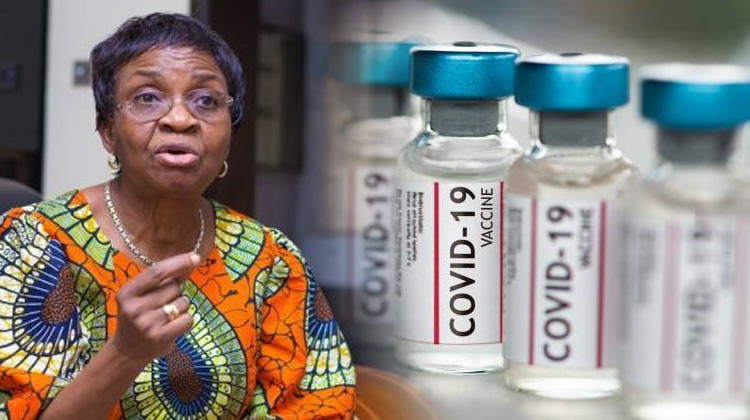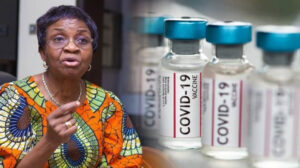The National Agency for Food and Drug Administration and Control has ruled out the possibility of conducting a local clinical trial on the proposed N400bn vaccines before administering them on Nigerians.
The agency said since the World Health Organisation had approved the vaccines there might not be need to conduct another clinical trial on the vaccines.
It, however, said it would subject vaccines, which the Federal Government may likely spend N400bn to procure, to proper revalidation before administering them on Nigerians.
NAFDAC’s Media Consultant, Sayo Akintola, said “owing to the exigencies of COVID-19, there may be no reason to conduct a trial before administering the vaccines.
“Once the vaccine arrives, a sample will be taken to the lab for a test. Once its safety and efficacy are certified by NAFDAC, it will be administered on Nigerians. We don’t expect anything to be different though.
“The truth is that once a vaccine is approved by the WHO, it is assumed that it has passed through some preliminary stage of the trial. It is a known fact that for the WHO to sanction a vaccine, it must have gone through a series of trial here and there,” he said.
Although he said NAFDAC’s evaluation of the vaccine would not be rigorous mainly because it’s not a new vaccine, Akintola noted that its efficacy and safety needed to be ratified.
He stated, “It is just for ratification. There is nothing on drugs or vaccines you will do without the consent of WHO. It is also expected that the regulatory body in each country would do its work in tandem with the WHO standard.”
Some virologists and infectious disease experts have disagreed with NAFDAC, insisting that there is a need to conduct a clinical trial on the vaccines in the country before administering it on Nigerians.
A clinical trial, according to the WHO, is a type of research that studies new tests and treatments and evaluates their effects on human health outcomes.
It noted that people volunteer to take part in clinical trials to test medical interventions including drugs, cells and other biological products, surgical procedures, radiological procedures, devices, behavioural treatments and preventive care. The global health body noted that biomedical clinical trials entail four phases.
A medical virologist at the Adeleke University, Ede, Osun State, Dr Elijah Kolawole, said it would be safer to conduct a mini clinical trial to determine the efficacy of the vaccine before rushing to administer it on a population of over 206 million.
He said, “This is because there is no evidence to show the earlier trial conducted in Europe had African volunteers. There is something we need to understand. In terms of human genetics, African-Americans are different and cannot be used to represent Africans in a trial.
“They could be similar but they cannot be regarded as a proper representation of Africans. That’s why you see a lot of differences in the way we respond to treatments based on our genetic make-up.”






